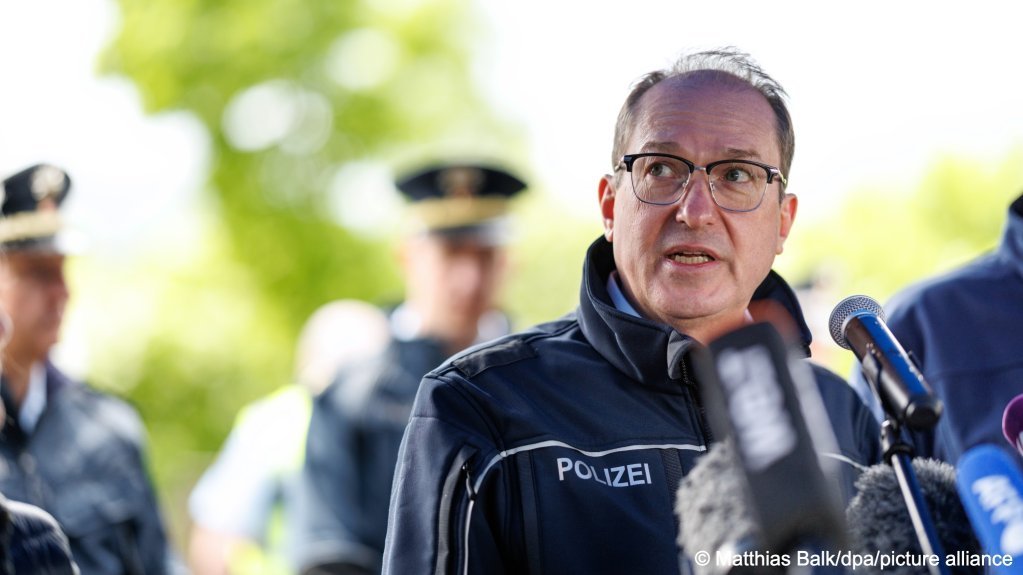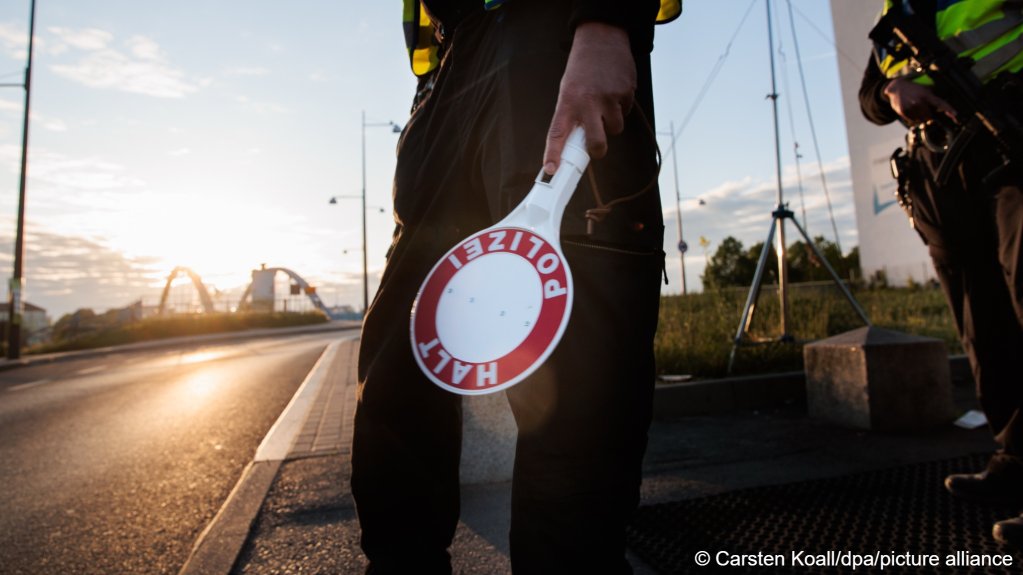Germany's new Interior Minister has defended his government’s stricter migration policy. He has also signalled that he wants to talk to other EU states about third state solutions for returns. German police, meanwhile, say stricter border controls are working.
Less than a month after Germany's new two-party government coalition was sworn in, the new Interior Minister, Alexander Dobrindt, has claimed that his government's tougher approach to migration policy is a success.
"Asylum applications at the border are also low because word has quickly got around that entry into the Federal Republic of Germany is no longer guaranteed despite asylum applications," Dobrindt told right-leaning weekly newspaper Welt am Sonntag (World on Sunday), in comments published on Saturday (May 31).
Mere hours after taking office on May 6, Dobrindt instructed that all asylum seekers should be turned back at Germany's nine land borders, making border control significantly more restrictive. The measures reportedly do not apply to pregnant women, children or other vulnerable people.
During the interview with Welt am Sonntag, Dobrindt also spoke of a "domino effect," noting that neighboring countries have followed suit by increasing checks at their own borders.
Read AlsoGermany: Irregular migration drops sharply
Concerns and criticism
When asked about criticism of Germany's migration policies from neighboring Poland and Switzerland, Dobrindt denied any "problems at Germany's borders," but added that Germany is in close consultation with the neighboring countries and does not want to overburden them.
He also claimed that France, Denmark, the Czech Republic and Austria support his government's change of tack.

"[These countries] have viewed our magnetic effect on refugees with concern, which was triggered by the [previous government's] migration policy," Dobrindt told Welt am Sonntag. "They all welcome the fact that Germany is becoming less attractive in terms of illegal migration."
Poland's Prime Minister Donald Tusk and Poland's embassy in Berlin had previously raised concerns over the tighter border controls, warning such measures could disrupt cross-border traffic and the functioning of the EU's internal market.
Switzerland and refugee advocates also criticized the measures, urging Germany's conservative-led government to keep its treatment of migrants and refugees in line with European law. German government spokespeople and ministers have declared that their policies meet both European and German laws.
Border checks at all German land borders were reintroduced in September 2024 in a bid to reduce the number of irregular entries into the central European nation. The results have been mixed.
The permanent border checks came on the heels of temporary border checks, which were first put into place in autumn 2023 on the borders with Poland, the Czech Republic, Austria and Switzerland.
Read Also
Polish man sues Germany over border checks
Despite criticism, federal police take positive stock
The President of the Federal Police, Dieter Romann, has meanwhile drawn an initial positive balance of the tightened controls at all German borders.
Romann tried to ease concerns and criticism of the German border controls from neighboring countries at the working level, claiming that he had spoken to all his counterparts several times and "experienced a lot of understanding for our measure" from them.
According to the right-leaning tabloid Bild am Sonntag, 3,387 unauthorized entries were registered at all national borders during the 23 days since the start of the tightened border controls on May 8. 2,613 migrants were reportedly turned back -- that's an average of 113 refusals per day. Of 160 people who had applied for asylum at the border, 125 were turned back.
Moreover, 35 migrants were allowed to enter the country because they were ill or accompanied by children.
Enough police officers?
Before the border controls were tightened, there were 9,800 federal police officers at the German borders, according to Romann. After September 16, 2024, about 1,200 more officers were added, bringing the total to between 13,000 and 14,000 officers. In early May, as the increased controls were announced, it was reported that the German government intended to send an additional 3,000 police officers to the borders to cover the extra work. On May 19, Deutsche Welle reported, citing Germany's police union, that at least 1,000 riot police had been temporarily sent to the border to help operate the posts.

Romann also rejected the criticism of the police union that officers are overworked. "Why should the Federal Police not be able to do today with around 56,000 employees what we used to be able to do with 10,000 or 30,000 officers," Romann told German tabloid Bild am Sonntag.
Germany's main police union, however, has warned that the stricter border controls can only be sustained for a limited period. Federal police have managed the additional workload only by adjusting duty rosters, suspending training sessions and putting overtime leave on hold, the chairman of the union has stated according to dpa.
In Germany, the federal police are responsible for the country's borders.
Dobrindt told Germany's left-leaning weekly news magazine Die Zeit that his long-term aim was to support an EU-wide move towards tighter controls at Europe's external borders, which would eventually make the internal controls for countries like Germany only needed for emergencies.
The new EU Pact on Asylum and Migration is due to be rolled out in 2026, this includes tighter controls at the external borders as well as a push to increase returns and repatriations.
with dpa, AFP
